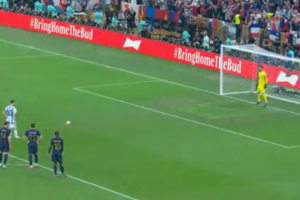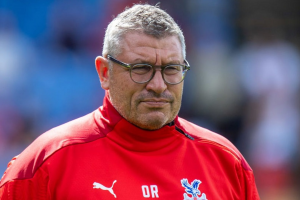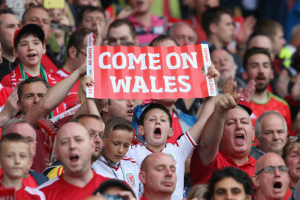Unless you were born in 1958 or were born after 2016, the idea of Wales playing in a World Cup has probably seemed like a dream for most of your life.
Hope is what it means to be a Welsh football fan. But even the most optimistic of them have had to deal with the fact that Wales hasn’t been able to compete in the sport’s biggest tournament for a long time.
Scotland in 1977, Romania in 1993, and the Republic of Ireland in 2017 all came close. They are written in everyone’s minds, leaving permanent marks that are broken up by periods of exhausting failure and, even worse, apathy.
If you’re a Welsh fan, you’re used to watching the World Cup as a neutral, accepting that Wales isn’t one of the teams competing. Instead, you pick a different country to root for every four years.
For 64 years, if you were a Welsh fan, you had to stand outside in the cold and look enviously through the window at people enjoying this festival.
Getting into Euro 2016 was a relief, and it was a great way to end a 58-year wait for a major tournament. That golden summer in France touched the hearts of a whole country, and the happiness was sweeter because of the pain that had come before.
It’s why there were tears in the rain in Zenica when the team finally qualified, why Welsh hearts were full when they sang their national anthem in the sun in Bordeaux, and why the big quarterfinal win over Belgium put Wales on a higher level.
Still, the World Cup was hard to get.
Then, in June, there was a day when the rain washed away all of Wales’ World Cup pain.
When Dafydd Iwan joined the players on the field to sing “Yma o Hyd,” a choir of 33,000 people in Cardiff sang along. It was a moment of arrival, return, and deep endurance all at the same time. Wales were still here in spite of everyone and everything.
Now Wales is in Qatar for the World Cup.
This group of players is moved by history, but it doesn’t wear them down. They understand the importance of what they stand for and know about 1958 and all that, but they are not held back by the mistakes of those who came before them.
As for the supporters, their past gives them weight and depth, but it doesn’t make them who they are. What they went through in the past makes everything they feel now even stronger, but what’s most important is the present and the hope it gives for the future.
This is a country that now sees its football team as one of the best ways to show its identity and sense of national pride.
On and off the field, there are people who make Wales proud, like Gareth Bale, Aaron Ramsey, and their teammates, as well as the fans who have helped create a unique image of Welshness around the world.
It’s about more than football, it’s a community, a tribe, a vibe. As the manager Robert Page says: “It’s Yma o Hyd, it’s the anthem, it’s the bucket hats, it’s the jerseys, it’s the music.”
There is no escaping the fact that this World Cup is different. Where many are concerned, the tournament should not be in Qatar.
There are myriad reasons why this country is a controversial host for a World Cup, from its human rights record to its stance on the LGBTQ+ community and its treatment of migrant workers.
And there are few, if any, reasons for this country, almost entirely devoid of any football heritage, to host a World Cup. For those visiting Doha, to report or support, it is natural to feel conflicted.
But to see Wales at a World Cup? That is something to savour. As complex and controversial as the backdrop to this competition undoubtedly is, it is still a moment in time for Wales.
Whether you are in Qatar, at home in Wales or elsewhere in the world, when Hen Wlad Fy Nhadau plays before the opening game against the United States on Monday, for just a few minutes, nothing else will matter.
Wales have waited a long time for this, and it might be a long time before we see its like again.
It’s worth saying again, try and let it sink in: Wales at a World Cup. Don’t fight it, feel it.


















